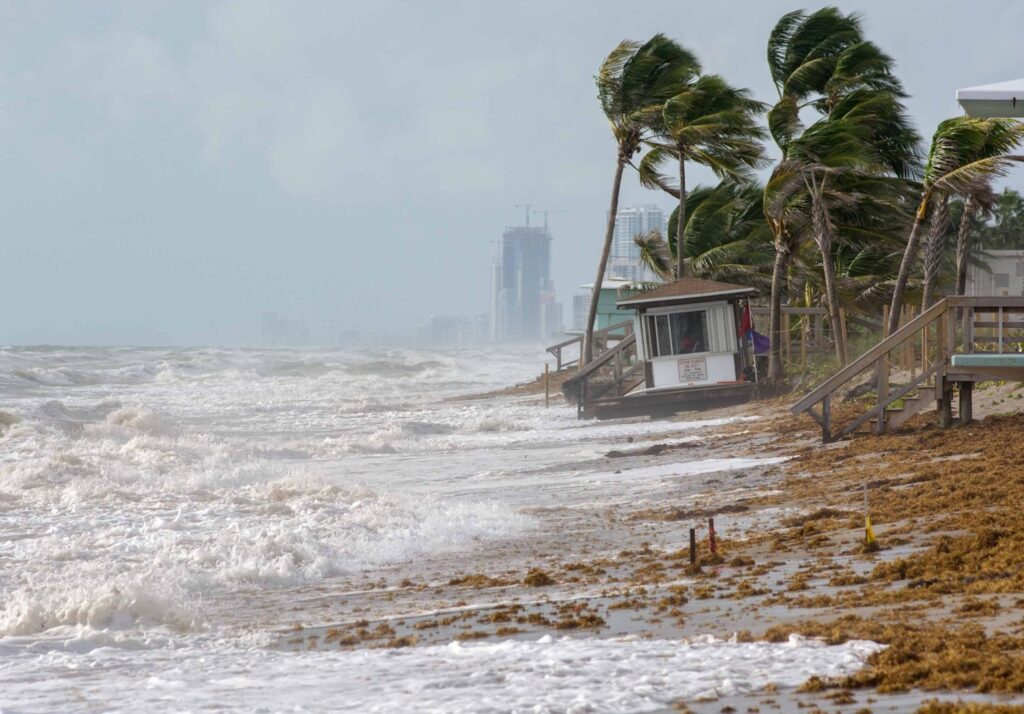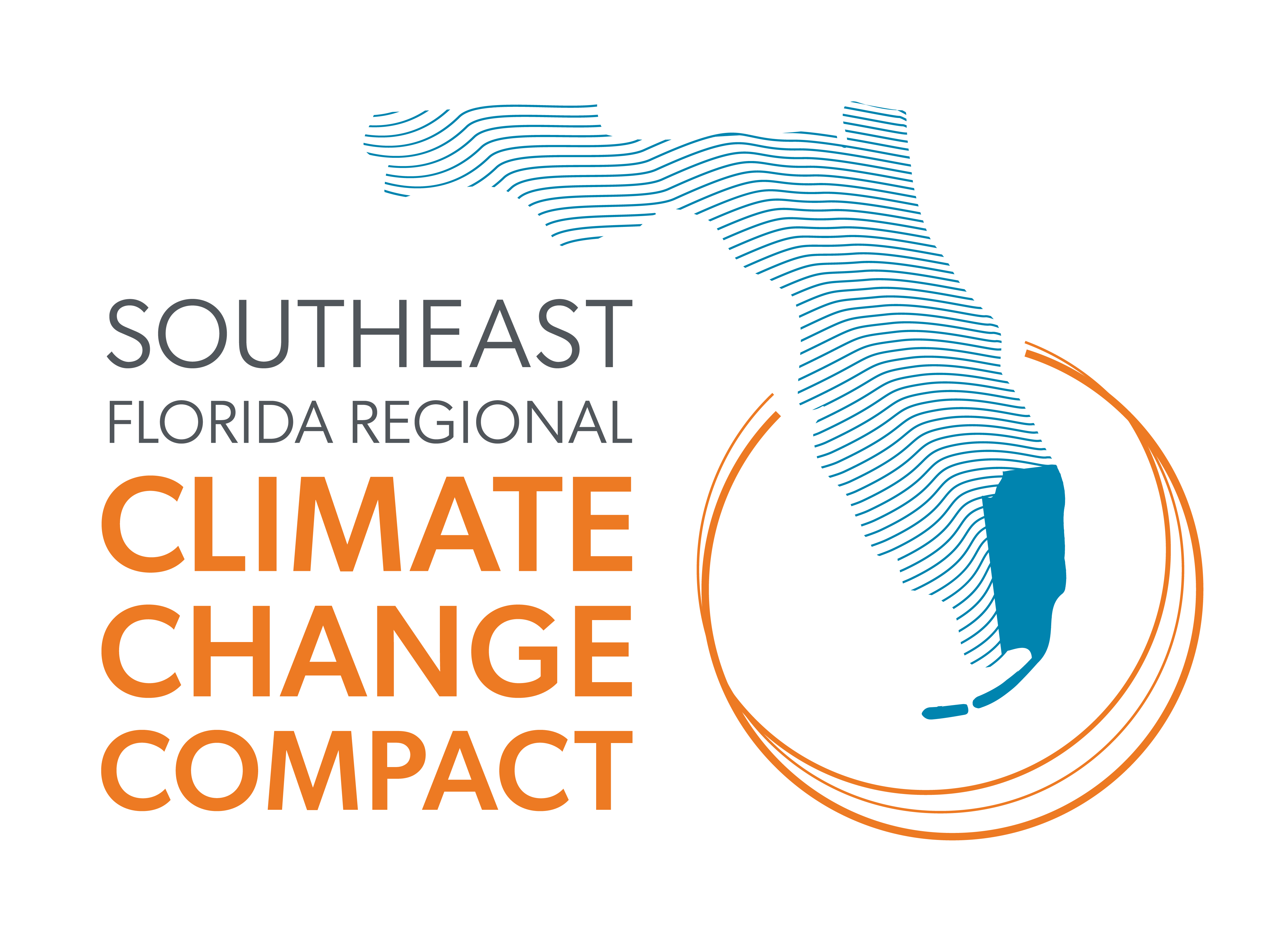
News
2025 Legislative Update
June 25, 2025
Authored by Janet Bowman, Senior Policy Advisor/Climate Policy, The Nature Conservancy in Florida

As of this writing, the Florida Legislature is in an extended 2025 session working on the one bill they must pass—the Appropriations Bill—therefore the budget will not be covered in this wrap-up. During the regular session, the legislature filed 1959 bills, passing only 257, and many of these bills are awaiting signature by the Governor. This session, many of the bills related to resilience address mitigation of flooding hazards and hurricane preparation and recovery. The below outlines bills related to climate resilience and mitigation.
CS/CS/SB 948 — Flooding Disclosure, requires a landlord of residential rental property or a mobile home park owner to disclose certain information regarding flood risks and past flooding of the property to prospective tenants. A tenant who does not receive the disclosures and who incurs substantial losses or damages due to flooding may terminate the lease and may be entitled to refund of advance rents paid if certain conditions are met. In addition, flood disclosure requirements for the sellers of residential property have been expanded to require the seller to disclose whether they are aware of any flood damage that occurred during ownership and whether they have received assistance from any source for flood damage to the property, as opposed to just federal sources.
CS/CS/HB 393—My Safe Florida Condominium Pilot Project extends the My Safe Florida grant program for hurricane hardening improvements to condominiums. The pilot program allows qualifying condominiums to participate in the My Safe Florida Home Program for the purposes of applying for hurricane mitigation grants for roof repairs and storm hardening improvements. Participation in the pilot program is limited to condominiums that are three stories or more in height and include at least two-single family dwellings.
CS/CS/SB 180 — Emergencies, includes many provisions governing state and local government preparation and recovery for storm related emergencies. Requires each county and municipality to develop a post-storm permitting plan to expedite recovery and rebuilding, and ensure sufficient staffing for increased permitting and inspection demands. Each local government must also publish on its website a post-storm permitting guide to advise residents of post-storm permitting procedures and rebuilding requirements. The bill requires each county and municipality to apply to the DEP for authorization of at least one debris management site.
The bill imposes restrictions on local governments permitting and land use actions after a disaster. First, local governments are prohibited from increasing building permit and inspection fees for a period of 180 days after the disaster declaration, and cannot impose new impact fees on structures that are rebuilt in a manner that does not increase demand on public services. Second, local governments are prohibited from adopting cumulative substantial improvement periods, also known as “lookback ordinances.”
Finally, Section 18 of the bill restricts “impacted local governments” defined as a county listed in a federal disaster declaration located within 100 miles of the track of a hurricane, for a period of one year, from adopting a building moratorium or imposing a more restrictive comprehensive plan amendment or land development regulation, unless the more burdensome change is initiated by a private property owner. The bill creates a process for challenging an action of a local government that violates the restrictions through declaratory or injunctive relief and provides for prevailing party attorney’s fees. Similarly, Section 28 of the bill restricts counties and municipalities listed in the Federal Disaster Declaration for Hurricanes Debby, Helene, and Milton from adopting building moratoria, restricting amendments to comprehensive plans, or more restrictive land development regulations before October 1, 2027. The bill provides for declaratory and injunctive relief for violation of the section and provides for attorney’s fees and costs if the challenge by the resident or business owner is successful.
Finally, HB 1313—Resilient Florida Trust Fund, Department of Environmental Protection, recreates the Resilient Florida Trust Fund within the Florida Department of Environmental Protection so it does not expire on July 1, 2025. Governor DeSantis signed the bill on April 18, 2025, Chapter No 2025-12, Laws of Florida.
Energy/Transportation related bills
While the 2025 Florida Legislature did not pass any major renewable energy or electric vehicle related legislation, climate mitigation policies, both positive and negative, are scattered throughout local government building permitting, energy and transportation legislation. The following highlights some of these provisions.
CS/CS/CS/HB 683—Construction Regulations, authorizes singe-trade plan review and expedited permitting for solar energy and energy storage installations, allows virtual inspections of projects, and requires a local government to issue the permit no more than 5 business days after receiving an affidavit from the private provider inspecting the installation. If signed by the Governor, or allowed to become effective without his signature, the bill is effective July 1, 2025.
CS/CS/CS/SB 700–Agriculture, Section 7 authorizes the Florida Department of Agriculture & Consumer Services (DACS) to adopt rules for protecting public health, safety, and welfare to establish standards for the placement, design, installation, maintenance, and operation of electric vehicle charging stations. Local governments shall issue permits for EV charging stations based on DACS rules including the time-period for approving or denying permits. Before an EV charging station is placed in service for public use, it must be registered with DACS. DACS is granted the authority to inspect EV charging stations, enforce rules and impose penalties. DACS is also granted the authority to impose administrative fines and seek injunctive relief in circuit court.
Section 6 the bill requires any lands acquired by an electric utility which have been classified as agricultural lands at any time in the five years preceding the acquisition of the land by the electric utility to be offered for fee simple acquisition by DACS before the land is offered for sale or transferred to a private individual or entity. Governor DeSantis signed the bill on May 20, 2025, Chapter No. 2025-22, Laws of Florida.
CS/CS/CS/SB 462—Transportation, revises the purposes of Metropolitan Planning Organizations (MPOs), to delete current language identifying the minimization of transportation related fuel consumption, air pollution, and greenhouse gas emissions through the MPO planning processes and substitutes language on “balancing natural resources.” The bill also provides that after July 1, 2025, no additional MPOs may be designated in Florida except in an urbanized area that is not contiguous to an urbanized area designated before the 2020 census.
The bill deletes language on coordination of MPOs and substitutes FDOT as responsible for the coordination or convening of MPOs. FDOT is authorized to use eminent domain to preserve land for future corridors. The bill also requires project development and environmental studies for capacity improvements to be completed, to the maximum extent possible, within 18 months and for capacity improvements on limited access facilities to evaluate the use of elevated roadways. Except as otherwise provided in the bill, if signed by the Governor or allowed to take effect without his signature, the effective date is July 1, 2025.
CS/CS/CS/SB 1662—Transportation, requires FDOT to identify transit providers, transportation authorities, airports and seaports that have adopted energy policy goals that are inconsistent with state energy policy. In addition, the bill requires the Florida Transportation Commission (FTC) to monitor any transit entity receiving public transit block grant funds. The bill repeals provisions incentivizing high-occupancy vehicle lanes. Finally, airports, upon declaration of a state of emergency issued by the Governor, are required to provide the FDOT with the opportunity to use any property that is subject to an existing lease agreement, for the staging of equipment and personnel to support emergency preparedness and response operations. If signed by the Governor, or allowed to become effective without his signature, the bill takes effect July 1, 2025.
CS/CS/SB 1574– Energy Infrastructure Investment, requires the Public Service Commission to establish an experimental mechanism to facilitate energy infrastructure investments in gas, including investments that collect, prepare, clean, process, transport or inject gas as a transportation fuel or for pipeline distribution. For purposes of the bill “gas” is defined to mean anaerobically generated biogas, landfill gas, or wastewater treatment gas produced in Florida and refined to a methane content of 90% or greater which may be used as a transportation fuel or for pipeline distribution. The bill provides an effective date of July 1, 2025.
CS/HB 1137—Utility Service Restrictions, adds to the scope of a state preemption over utility service restrictions on the type of energy or fuel sources that may be used or supplied to customers, a “board, agency, commission, or authority of any county, municipal corporation, or political subdivision.” Prohibits the entities listed above from restricting or prohibiting appliances that use a specific type of fuel source or energy. (e.g. gas appliances.) The bill likewise prohibits rural electric cooperatives from taking actions that restrict the types of fuel sources or the use of appliances that use certain fuel sources. The bill was signed by the Governor on May 20, 2025, Chapter No. 2025-42, Laws of Florida.
Selected bills that did not pass:
- CS/HB 371/SB 50 Nature-based Methods for Improving Coastal Resilience
- HB 1063/SB 1148 Carbon Sequestration
- SB 1304/HB 1595 Solar Facilities
- SB 62/HB 143 Resilient Buildings
- SB 1316 Resilience Districts
- SB 1398 Resilient Infrastructure Loans
- SB 354 Florida Public Service Commission
- HB 1169/SB 7002 Water Management Districts
- SB 1118 Land Use and Development Regulation
